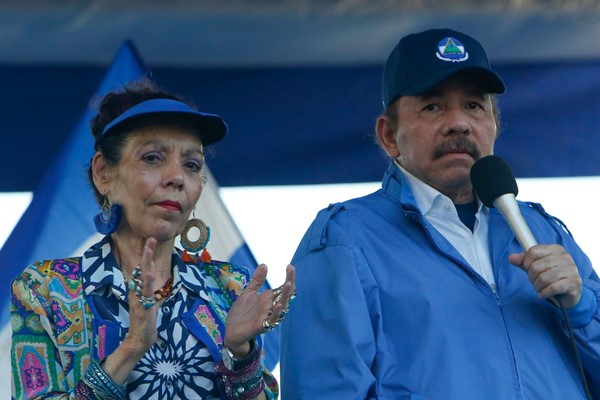A package of laws moving through Nicaragua’s parliament will further muzzle the opposition and curtail the activities of independent media outlets, setting up another phase of repression under President Daniel Ortega. It is Ortega’s latest effort to silence dissent since mass protests against his rule raised the risk of civil war in 2018. Experts say the new measures are a sign of Ortega’s nervousness as he prepares for a presidential election next year, amid an ongoing political crisis and an economic picture that worsens by the day.
The unicameral National Assembly, which is controlled by Ortega’s Sandinista National Liberation Front, is set to pass a vaguely worded “cybercrimes” bill in the coming days that imposes criminal penalties for those convicted of spreading “false and/or misrepresented information” online. The legislation has been dubbed the “gag law” by human rights activists, who see it as a form of censorship, and it does not specify how the information in question would be deemed false or misrepresented. Those who fall afoul of the law could be fined or sentenced to up to four years in prison.
According to Christine J. Wade, an expert on Central America at Washington College and a contributor to WPR, the law is intended to restrict opposition members’ access to social media, which has been an important tool for them to organize and share information. “To this point, social media has been largely unrestricted,” Wade said in an email interview. “Targeting this space assails one of the last free venues of speech in Nicaragua.”

